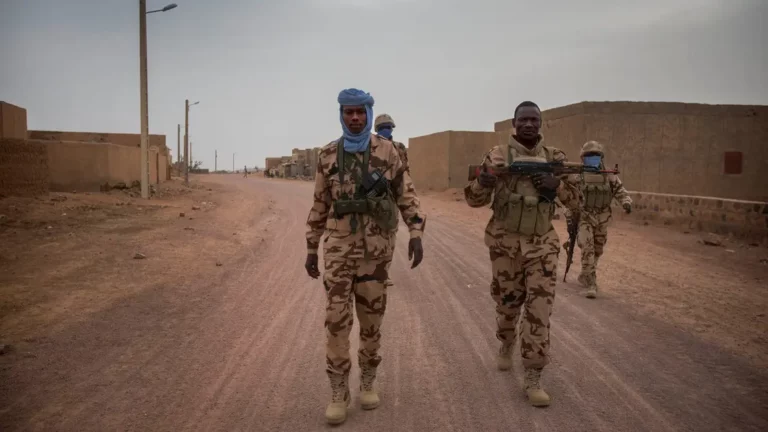The UN Security Council terminated a peacekeeping mission in Mali that had been in place for ten years, on Friday. The nation’s military junta, now aligned with Russia, demanded the withdrawal of the international forces involved in the fight against jihadists.
Upholding the principle that peacekeeping initiatives require the consent of the host government, the Security Council resolved to commence the immediate winding down of the mission, despite concerns to the surprising statement made by Malian Foreign Minister Abdrns raised by Western powers about the potential for heightened instability in the troubled African nation. The decision came in two weeks earlier, branding the major UN operation, Minusma, as a ‘failure’ and urging its termination.
The United Nations’ alliance with Mali has witnessed a sharp decline as a result of a 2020 coup that brought a military regime to power and led to the discontinuation of defense collaboration with France, the country’s former colonial authority.
Contrarily, the junta has aligned itself with Moscow and enlisted the services of the Wagner Group, a notorious mercenary organization known for its involvement in a recent mutiny against Russian President Vladimir Putin.
‘We deeply regret the transitional government’s decision to abandon Minusma and the harm this will bring to the Malian people,’ senior US diplomat Jeffrey DeLaurentis informed the Security Council.
Read also: Suspected Jihadists Bomb ‘Russian Camp’ In Mali
However, he stated that the United States supported the resolution and voted positively as it aligned with the logistical timeline for withdrawal, which is anticipated to be completed by the end of the year.
Soon after the vote, Russian Foreign Minister Sergei Lavrov spoke with Diop, assuring Mali of Russia’s full support in military, humanitarian, and economic spheres, according to the foreign ministry in Bamako.
Additionally, Russia’s deputy ambassador to the UN, Anna Evstigneeva, vowed to offer ‘comprehensive support’ to Mali, recognizing the country’s commitment to taking ‘full responsibility’ for its security.
Pursuant to the resolution led by France, the peacekeepers will discontinue their primary activities as of Saturday and prioritize their departure. However, they will maintain the capability to protect civilians from ‘imminent threats of violence’ until September.
It is worth noting that Minusma has been the costliest UN mission, with an annual expenditure of $1.2 billion, and has tragically suffered the loss of 174 peacekeepers since its inception in 2013.
Despite the strained relations with the junta, the UN mission had been widely anticipated to receive an extension until the intervention of the Malian foreign minister. Earlier in June, Secretary-General Antonio Guterres had proposed renewing Minusma while streamlining its operations.
In a report, Guterres recognized the mission’s shortcomings but deemed it ‘invaluable.’ He highlighted that several countries in the region regarded extremist groups as an ‘existential threat’ and expressed concerns about the potential spillover of violence.
The termination of Minusma presents a formidable undertaking as the United Nations, with its 13,000 troops and police, must now navigate the challenge of relocating equipment, helicopters, and armored vehicles.
Mali, with support from Russia, which holds veto authority, insisted on the swift departure of Minusma, whereas certain nations voiced their worries that a six-month period might be deemed as excessively rushed.










